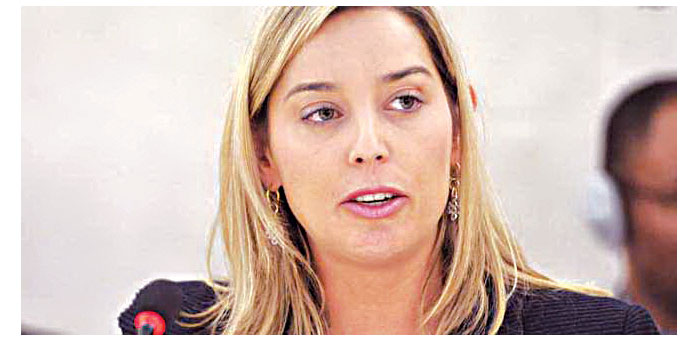|
The recognition of the principle of separation of powers and the independence of the judiciary in Qatar’s Constitution has been lauded by the United Nations Special Rapporteur on the Independence of Judges and Lawyers. |
“The unification of the courts under one system is also a welcome development which largely contributed to consolidating the administration of justice in Qatar,” Gabriela Knaul said in Doha yesterday.
She was addressing a press conference to announce the preliminary observations and recommendations upon the conclusion of an eight-day visit to examine, in the spirit of co-operation and dialogue, both the achievements and shortcomings of Qatar in ensuring the independence of the judiciary and the free exercise of the legal profession.
“I thank the government of Qatar for the invitation to conduct this official visit and for its engagement with my mandate, while fully respecting my independence,” she said, while observing that Qatar’s recent engagement with human rights mechanisms has been exemplary.
“In the region, Qatar was the first State to issue a standing invitation to the special rapporteurs of the Human Rights Council; it was also the first to create a National Human Rights Committee,” Knaul said.
The UN official maintained that the establishment of the Supreme Judicial Council in the Law on the Judiciary of 2003 and the Constitution as a self-governing body of the judiciary, was also a commendable step towards ensuring the independence of the justice system from the other branches of power.
“The creation of a Constitutional Court should also be underlined as a positive development. But, it remains unclear why this Court is not yet operational more than five years after the legislation that created it was passed and more than four years after its head was appointed. I strongly encourage that the Court be formed, start functioning as early as possible and be provided with all the resources and guarantees necessary for its full independence and proper administration,” she said.
Knaul welcomed the constitution of the public prosecution as an institution independent from other ministries or the judiciary.
“Nevertheless, it is important to note that the Prosecutor General has the rank of minister which may create confusion regarding his independence from the executive,” the UN official explained.
“The current judicial system in Qatar was recently established and, as such, continues to face challenges, especially in relation to the independence of judges, prosecutors and lawyers. These challenges, which directly affect the delivery of justice and the enforcement of human rights, should be assessed and addressed in a timely fashion in order to bring the administration of justice in Qatar in line with international human rights standards,” she said.
The UN official was of the view that the constitutional provisions relating to the separation of powers do not seem to be fully implemented.

